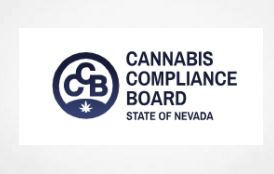On July 17, 2019, we described five critical changes the Bureau of Cannabis Control (“BCC”) must immediately cause to be made in connection with the regulation of cannabis in California. [See Critical Changes] In the introductory paragraph of our July 17th article we noted the California Department of Finance (“CDF”) recently released a scathing audit report on the enforcement activities of BCC. [See California DOF Audit Report on BCC]
CDF is a financial watchdog for California. CDF’s audit report on BCC covered the period of July 2016 to January 2019. CDF’s report solely focused on BCC’s enforcement activities. As a consequence of CDF’s governmental role, the period covered by the audit, and the focus on enforcement, CDF’s report has almost no bearing on the issues that have made California’s cannabis industry so tumultuous. A bottom-line summary of CDF’s audit report would read, “BCC made some good effort, but the agency should have accomplished more for the amount of money expended.”
CDF’s audit report is undoubtedly useful as a guide for improving administrative efficiencies. But CDF’s report provides no useful guidance for improving California’s regulation of its cannabis industry. CDF’s report confirms our analysis of the critical changes that are required to significantly improve California’s cannabis regulation.
CDF’s report focuses on the enforcement activities of BCC. As our July 17th article explains, CalCannabis through its actions, and the California Department of Tax and Fee Administration (“CDTFA”) through its inaction with respect to Cannabis Cultivation Tax (“CCT”) and Cannabis Excise Tax (“CET”), are the principal causes of the booming underground cannabis market and the corresponding chaos as regulatory agencies.
We will not let BCC “off the hook.” BCC is 100% responsible for the chaos in California cannabis industry. BCC is 100 % responsible for the booming underground cannabis market. BCC is the lead agency for the regulation of California’s cannabis industry. California Business and Professions Code (“B&P”) §26010.5(d) expressly states BCC “has the power, duty, purpose, responsibility, and jurisdiction to regulate commercial cannabis activity as provided” in the Medical and Adult Use Cannabis Regulation and Safety Act (“MAUCRSA”). The grant of the power, duty, purpose, responsibility, and jurisdiction to BCC pursuant to the express language of MAUCRSA applies to all commercial cannabis activity. The statute is clear and unequivocal.
BCC misunderstood, or misconstrued, or was not capable of performing, the role it was given under MAUCRSA. CDF audited the first two and one-half years of BCC’s performance in connection with a part of one function of regulation. CDF’s audit report is an idle exercise as we will explain. CDF’s audit is an idle exercise because it examines BCC’s performance with respect to a minor aspect of BCC’s overarching role under MAUCRSA as the governmental agency with the duty, authority and responsibility for the regulation of all commercial cannabis activity in California.
The two paragraphs that follow are the introductory paragraphs of CDF’s audit report,
“In accordance with Business and Professions Code (BPC) Division 10, Chapter 19, section 26191, the California Department of Finance, Office of State Audits and Evaluations, conducted a performance audit of the California Department of Consumer Affairs (DCA), Bureau of Cannabis Control (Bureau). The audit objectives were to:
Determine the effectiveness of the Bureau’s enforcement programs.
Determine the actual costs of the program.
“The Bureau is the lead agency in regulating commercial cannabis licenses for medical and adult-use cannabis in California and is responsible for licensing retailers, distributors, testing laboratories, microbusinesses, and cannabis events. The Bureau’s mission is to protect the public and consumers through various regulatory, licensing, enforcement, and disciplinary activities.”
CDF is an administrative department that is filled with intelligent and talented employees. BCC is a Bureau within the Department of Consumer Affairs (“DCA”). BCC is also filled with intelligent and talented employees. In the absence of leadership and guidance, intelligent and talented employees are rarely productive. BCC failed to critically analyze the law and California’s cannabis industry. BCC also failed to set reasonable and achievable goals before it began developing an administrative framework for cannabis regulation. As a result, BCC brought chaos to the industry rather than effective regulation. [See Chaos Will Continue!, Cannabis Lawyer – Dangerous? , California Chaos Causes, California Uses ACID – Illegal Grows and Colossal Cannabis Fiasco]
CDF followed BCC’s lead. CDF failed to read the law. CDF expended hundreds of hours of time developing analyses and making recommendations relating to changes in administrative practices and policies to add efficiency to BCC’s ineptitude. [See California government report finds regulators are unable to fully oversee the state’s marijuana market] The statement of the objectives of CDF’s audit belie the agency’s understanding of BCC’s role in the regulation of the industry. Of what importance is the effectiveness or cost of BCC’s “enforcement programs”? Perhaps the better question would be, “Who wants to know and why?” An even better question may be, “Who cares?”
The first sentence of the second paragraph quoted above reflects how poorly California’s administrative agencies have regulated the industry. Both of the statements in the first sentence are accurate. Conflating two separate, accurate statements into a single statement makes the sentence false and misleading.
B&P §26012(a)(1) assigns the task of licensing a number of enumerated cannabis business activities to BCC. B&P §26012(a)(2) and (a)(3) assigns the task of licensing cultivation activities and manufacturing activities to the California Department of Food and Agriculture (“CDFA”) and California Department of Public Health (“CDPH”), respectively. As we have noted in other articles, everyone failed to notice Cannabis Cooperative Associations (“CCAs”) need licenses. [See CCA Advantage! and CCA’s Good or Better]
Licensing is a foundational function that facilitates regulation. In the absence of licensing, the effectiveness of regulation will always be limited. A strong argument can be made that the principal cause of the maladroit roll-out of cannabis regulation in California was the failure of BCC to mandate a state-wide registration process that made it simple, quick and easy for all locally permitted cannabis businesses to secure California licenses.
Think about the situation that has been created by the ineptitude of California’s regulatory agencies. There are more unlicensed cannabis businesses operating in California than licensed businesses. Cannabis businesses that are not California licensed are being established in increasing numbers. Cannabis licenses are annually renewable licenses. Would not California be better served if all of the locally licensed cannabis businesses in California were licensed, taxpayers who were in the process of renewing California licenses?
Consider the first question California will always ask in connection with the renewal of a California business license, “Have all tax returns been filed and all taxes paid?” Filing tax returns and paying taxes will be a condition of renewal.
Consider also how simple enforcement against unlicensed businesses will be if California licensing of locally licensed cannabis businesses is simple, quick and easy. “Does the business have a local cannabis business license?” If the business has a local license, licensing at the California level is simple, quick and easy but the business will be fined for its delinquency. If the business does not have a local license, the business can be immediately shuttered as it is conducting business in obvious violation of the law.
We must emphasize a very important aspect of the preceding. The above described approach to licensing will return the ultimate control over the regulation of commercial cannabis activity with regard to issues relating to land use and public health and safety to local jurisdictions where it belongs.


















